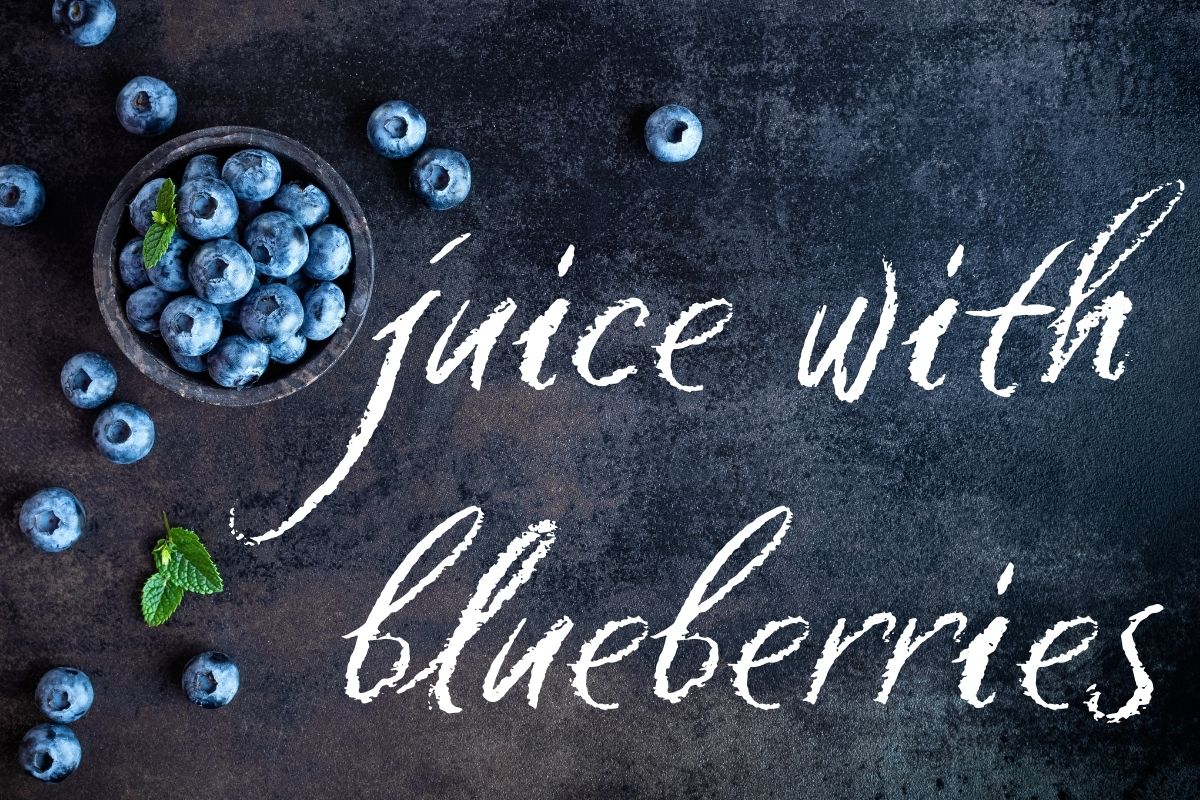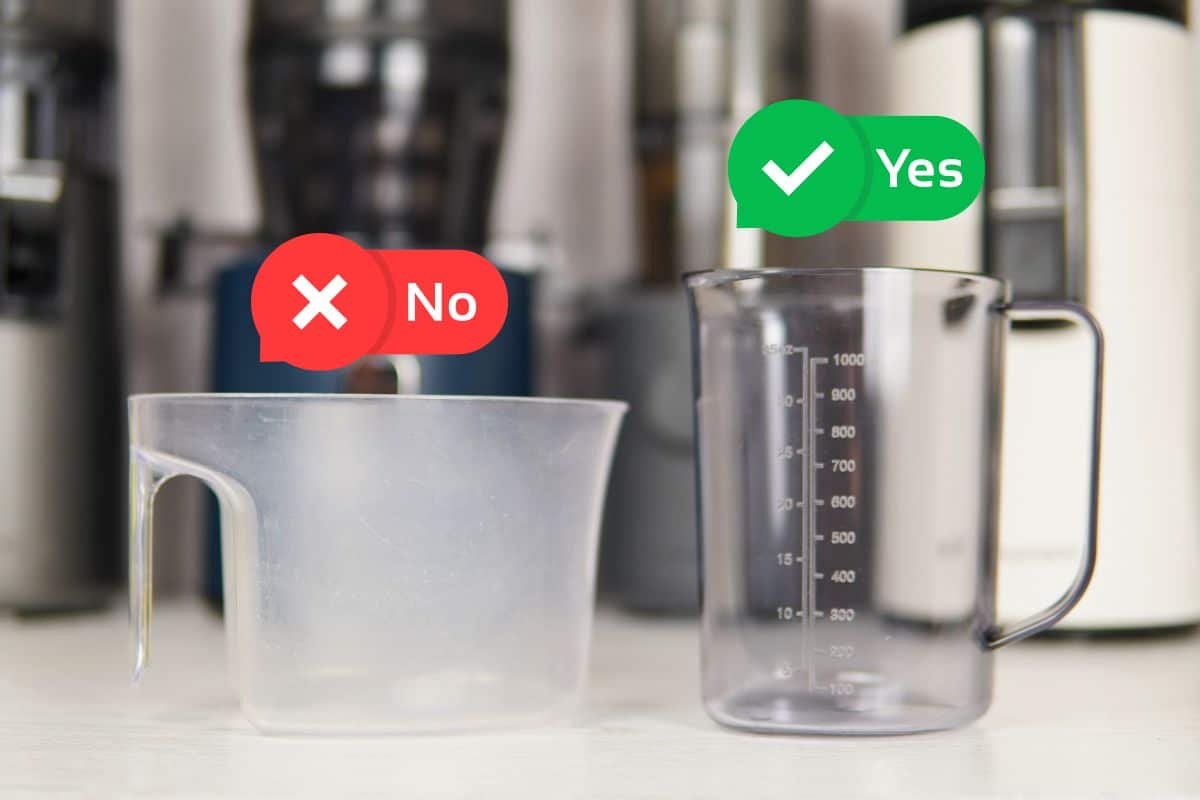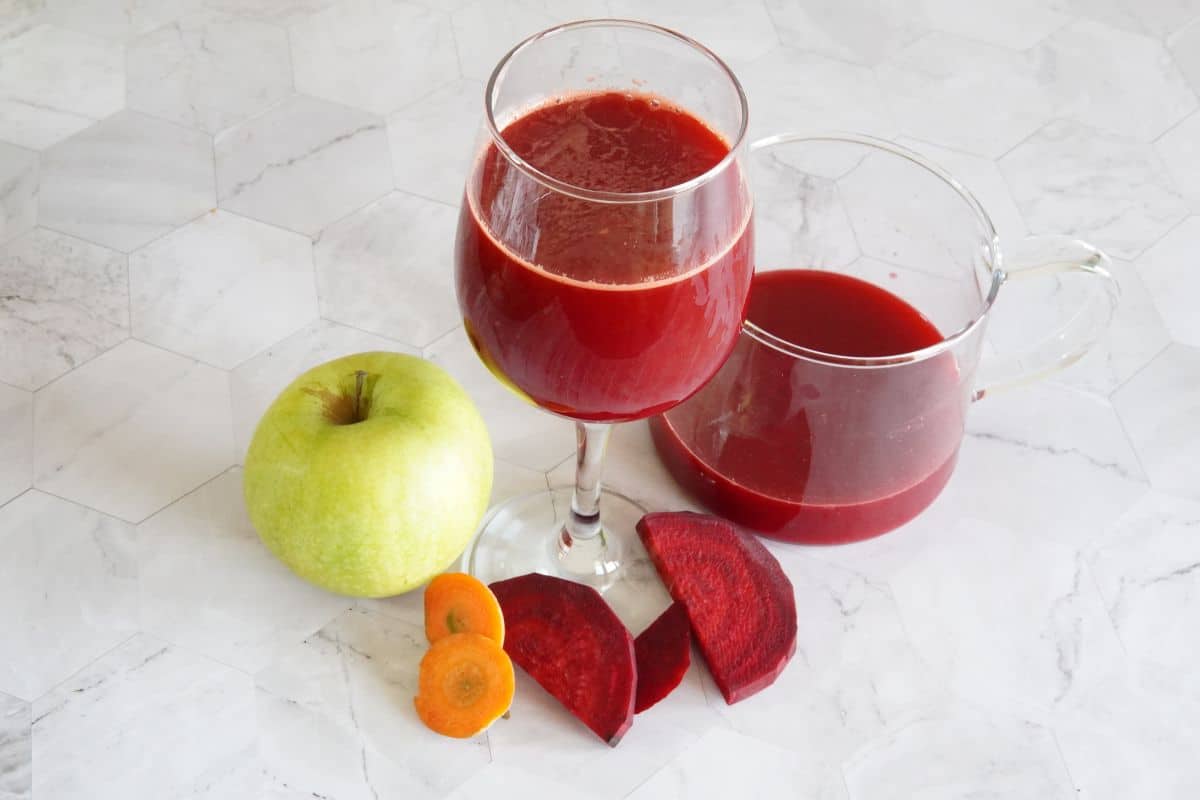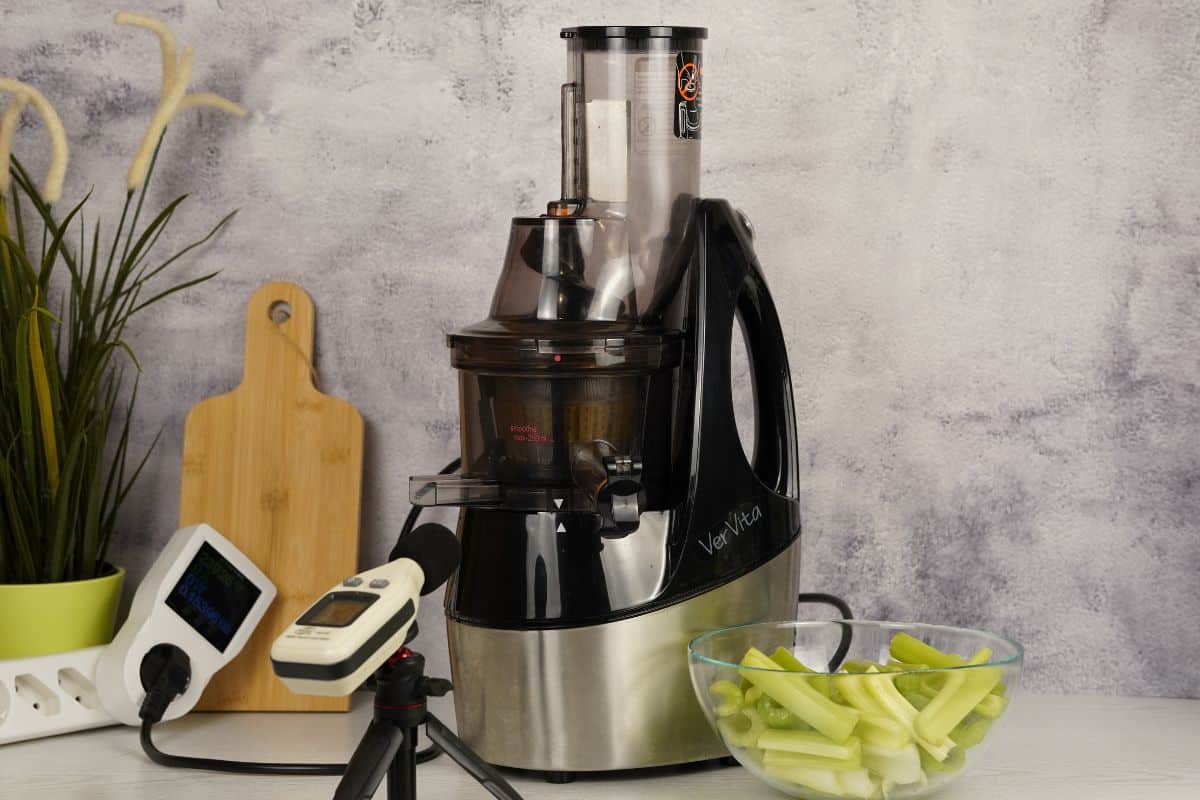Did you know that juicing with blueberries can unlock incredible health benefits? While these small superfoods pack a powerful punch on their own, transforming them into juice with blueberries creates an easily digestible form of their nutrients.
They may help lower blood pressure – a major risk factor for heart diseases, control blood sugar levels, maintain brain function, and improve memory.
Their delightful sweetness makes blueberries a favorite fruit for a lot of people. While they are often enjoyed fresh, they can also be eaten frozen. Whether fresh or frozen, they can be added to smoothies, baked goods, dessert but they are commonly used for juicing with blueberries.

Choosing the right blueberries
When it comes to selecting blueberries, understanding your options can enhance both flavor and health benefits.
Fresh vs. Frozen: Fresh blueberries are often prized for their vibrant taste and texture, making them perfect for snacking or adding to dishes. However, frozen blueberries retain most of their nutritional value and can be a more convenient choice, especially out of season. They’re ideal for smoothies, baking, or cooking, as they are often flash-frozen at peak ripeness.
Organic vs. Conventional: Organic blueberries are grown without synthetic pesticides or fertilizers, which can be beneficial for both health and the environment. While they may have a slightly higher price tag, many consumers prefer them for their taste and reduced chemical exposure. Conventional blueberries, while still nutritious, may be treated with pesticides, so washing them thoroughly is recommended.
Ultimately, the best choice depends on your preferences, budget, and intended use.
Nutritional values
Blueberries: low in calories and fat, high in fiber, vitamins, minerals, and antioxidants.
A 100g serving of blueberries has
- Calories: 57
- Water: 84%
- Protein: 0.7g
- Carbohydrates: 14.5g
- Sugar: 10g
- Dietary fiber: 2.4g
- Fat: 0.3g
Vitamins and Minerals:
- Vitamin C: 9.7 mg (16% of the Daily Value) – strong antioxidant, that supports immune system function and skin health.
- Vitamin K: 19.3 µg (16% of the Daily Value) – mostly involved in blood clotting, but may benefit bone health.
- Vitamin B7 (Biotin): < 3.7µg (≈12.3% of the Daily Value) – helps the body metabolize fats, carbs, and proteins, but also helps maintain a healthy nervous system, healthy hair, and skin.
- Manganese: 0.3mg (18% of the Daily Value) – crucial for bone and muscle health, assists in the metabolism of macronutrients and is involved in brain health.
Antioxidants
Rich in a diverse range of antioxidants, especially anthocyanins.
Health Benefits of Blueberries
1. Cardiovascular health
Research shows that eating fresh or frozen blueberries, or even juice with blueberries can help manage cardiovascular health in several ways:
- Boost Blood Flow: The flavonoids, especially anthocyanins, are associated with improved blood flow and healthier blood vessels. Therefore, the intake of blueberries may be quite effective in managing blood flow.
- Lower Risk of Heart Attacks: In a study conducted on women from the Nurses’ Health Study (NHS) II, the ones who ate more than three servings of blueberries and strawberries each week had a 34% lower risk of heart attacks compared to those who didn’t consume them.
- Blood Pressure Support: Regular blueberry consumption may help lower high blood pressure, a key risk factor for heart disease. Findings from the Nurses’ Health Study and the Health Professionals’ Follow-up Study revealed that consuming more than one serving of blueberries per week was associated with a 10% lower risk of hypertension compared to not eating blueberries at all.
- Cholesterol Benefits: The antioxidants in blueberries are strongly linked to reduced levels of oxidized LDL. In a study published in The Journal of Nutrition, obese people who consumed 50 grams of freeze-dried blueberries daily for eight weeks saw a 28% drop in oxidized LDL. A study, released in The American Journal of Clinical Nutrition, conducted on people with metabolic syndrome showed that daily consumption of blueberries lowered blood total cholesterol, lowering LDL – “bad” cholesterol.
- Anti-Inflammatory Effects: Considering that low-grade chronic inflammation is associated with a higher risk of CVD development, the anti-inflammatory potential of blueberries may also play an important role in reducing the risk of developing these pathologies.
2. Boost Your Brain Power with Blueberries
Blueberries aren’t just good for your heart; they’re great for your brain, too! Here’s how they can help improve memory and cognitive function:
- Fights Aging: Blueberries help combat oxidative stress, which can speed up brain aging. Eating them more than once per week can slow cognitive decline.
- Supports Healthy Aging: Studies show that eating ≥ 2 servings of blueberries per week is linked to healthier aging and a lower risk of conditions like Parkinson’s disease.
- Improves Brain Function: In a human study, published in the Journal of Agricultural and Food Chemistry,older adults with mild cognitive impairment who drank blueberry juice daily for 12 weeks showed improvements in brain function.
Clinical studies observed in middle-aged and older adults have found that the daily consumption of various doses of freeze-dried blueberries, ranging from 0.5–1 cup, or 75–180 g fresh blueberries equivalent (providing 140–461 mg anthocyanins) has positive effects on cognitive performance over intervention durations from 12 to 24 weeks. One study released in the Journal of Agricultural and Food Chemistry observed similar benefits from juicing with blueberries. It is found that the consumption of 444–621 mL/day of blueberry juice which is equivalent to 604–845g of fresh blueberries; provides 428–598 mg anthocyanins.
3. A Sweet Ally Against Diabetes
Due to their low content of sugar and high content of fiber when compared to other fruits, blueberries do not lead to blood sugar spikes. This is why blueberries may be beneficial in controlling blood sugar levels.
A diet that included blueberry powder supplementation has been shown to enhance insulin sensitivity in humans. Furthermore, results from studies conducted in humans demonstrated a beneficial effect of blueberries on insulin resistance and blood sugar levels.
The results from three prospective studies examining the impact of fruit consumption on developing type 2 diabetes revealed that, among all the analyzed fruits, blueberries had the strongest association with a 26% reduction in risk of developing type 2 diabetes.
4. Nature’s Antioxidant Powerhouse
Blueberries are celebrated for their powerful antioxidant properties. They are thought to have the highest levels of antioxidants of any common fruit or vegetable. Antioxidants help protect against free radicals, unstable and harmful molecules that can damage your cells and contribute to aging and diseases, such as cancer.
The antioxidant capacity of blueberries stems from their high levels of phenolic compounds known as anthocyanins. There are identified over 15 types. These anthocyanins are mostly concentrated in the fruit’s skin. Therefore, the outer layer of the berry is the most nutritious part.
Researches indicate that blueberries directly enhance antioxidant levels in the human body. A study found that a cup (150g) of cultivated blueberries contains 9,019 antioxidants, while a cup (150g) of lowbush (or wild) blueberries contains 13,427 total antioxidants.
Must Try Cold-Pressed Blueberry Juices!
1. Blueberry Green Mix
Ingredients
- 1 cup (150g) fresh blueberries
- 1 apple
- 1 celery stalk
- ½ cucumber
- ¼ beetroot
- ¼ lime – if it’s a large one or ½ – lime if it’s a small one (=1 tablespoon lime juice)
- ½ cup – 120ml water
Instructions
- Wash all the fruits and vegetables thoroughly. Make sure there is no dirt stuck on the celery stalk or the beetroot.
- Core the apple and cut it into quarters.
- Chop the celery stalk into smaller pieces and the cucumber into smaller chunks.
- Peel and chop the beetroot into small pieces.
- Feed all the ingredients into the juicer alternating between softer and firmer ingredients to ensure smooth processing.
- Add the water.
- You can enjoy the juice immediately or you can store it in the fridge.
NOTE: This amount of ingredients is enough for getting 2 servings of juice.
2. Blueberry Citrus Splash
Ingredients
- 1 cup (150g) fresh blueberries
- 1 orange
- ½ grapefruit
- ½ cup – 120ml water
Optional
- 1 tablespoon honey
- 2.5cm ginger piece (peeled, chopped)
Instructions
- Wash all the produce thoroughly.
- Peel the orange and grapefruit and cut into wedges.
- Juice the blueberries, orange, and grapefruit together. If you decide to add ginger (peel and chop it) juice it together with the other ingredients.
- Once you get the juice you can add a tablespoon of honey for a sweeter taste. Make sure you mix it well until it is fully dissolved.
- Enjoy!
3. Tropical Blueberry Juice
Ingredients
- 300g fresh blueberries
- 1 orange
- 1 ripe pineapple
- ½ cucumber
- 3-4 leaves of fresh mint
- 300ml water
Instructions
- Wash all the ingredients under running water.
- Peel and segment the orange.
- Peel and chop the pineapple.
- Peel the cucumber and cut it into chunks.
- Put all the prepared ingredients in the juicer, including 300ml water.
- Once you get the juice pour some of it in a glass and enjoy!
Tips for Storing and Enjoying Blueberry Juice
Best Storage Practices:
- Use Airtight Containers: Store blueberry juice in clean, airtight glass containers to minimize exposure to air, which can lead to oxidation.
- Refrigeration: Always refrigerate the blueberry juice promptly after juicing. This helps preserve freshness and nutrients.
- Avoid Light Exposure: Keep the juice in a dark place or opaque container to protect it from light, which can degrade nutrients and color.
How Long Does the Juice Stay Fresh?
- Freshly Made Juice: It is ideal to consume blueberry juice within 1 to 3 days for the best flavor and nutritional benefits.
- Freezing: If you want to store it longer, consider freezing the juice. It can last up to 6 months in the freezer. Just make sure to leave some space in the container, as liquids expand when frozen.

Hello! I’m Vlera Lata, a dedicated nutritionist with a Bachelor’s degree in Nutrition from “Ss. Cyril and Methodius” University in Skopje. I have attended a training course and have been certified in “Nutrition and Lifestyle in Pregnancy” by the Ludwig Maximilian University of Munich. My journey in health and wellness includes hands-on experience in nutrition coaching, dietary research, and community health projects.
Through my writing, I aim to make nutrition approachable and engaging, providing readers with valuable insights and practical advice for healthier living. I am passionate about sharing evidence-based insights on nutrition and wellness. Excited to share my knowledge and inspire you on your wellness journey!
For more information, you can find me on Instagram.










